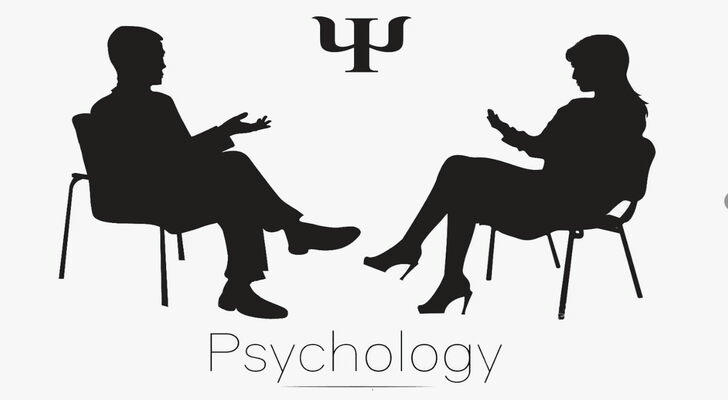Psychological Counselor Certification: Pathways, Skills, and the Future of Mental Health Practice

In today’s society, mental health is receiving increasing attention, and psychological counselors play a vital role in alleviating emotional distress and resolving psychological issues. Certification for psychological counselors is not only a testament to their professional competence but also an essential standard to ensure the effectiveness and quality of counseling services. This article explores the importance of counselor certification, the certification process, the required professional knowledge and practical skills, and future trends, providing a comprehensive guide for those aspiring to enter the field of psychological counseling.
The Importance of Certification
As professionals in the mental health field, psychological counselors are responsible for more than emotional support—they are involved in psychological intervention, crisis management, and behavioral guidance. Obtaining professional certification gives counselors the confidence to apply their knowledge in helping individuals, families, and groups.
According to the World Health Organization (WHO, 2022), one in eight people globally live with a mental health disorder, emphasizing the urgent need for qualified mental health professionals. Certification ensures that practitioners are trained according to professional standards, thereby reducing the risk of ineffective or even harmful intervention.
In addition, a study published in the journal Psychotherapy (American Psychological Association, 2021) found that clients reported higher satisfaction and better outcomes when working with certified mental health professionals, highlighting the tangible value certification adds to the quality of service.
Certification Process and Pathways
The certification process for psychological counselors is rigorous and systematic, typically including theoretical exams, practical assessments, and case analysis. The general stages include:
Preliminary Qualification Review
Candidates are required to submit academic credentials, documented training hours, and case experience. The National Board for Certified Counselors (NBCC), for example, requires a minimum number of supervised hours and a degree in counseling or a related field.Theoretical Knowledge Examination
This exam tests knowledge in areas such as developmental psychology, psychopathology, psychological assessment, and counseling ethics. The National Counselor Examination (NCE) is one widely recognized test that evaluates these competencies in depth.Practical Ability Assessment
Candidates must demonstrate their practical counseling skills through supervised clinical hours, typically ranging from 100 to 600 hours depending on the program. Research by The Journal of Counseling & Development (2020) suggests that real-world practice under supervision significantly increases a counselor’s competence in client-centered therapy.Case Analysis and Oral Defense
In some systems, candidates are required to analyze specific case scenarios and present their assessment and intervention plan before a panel of experienced practitioners. This process ensures not only intellectual understanding but also ethical decision-making and cultural sensitivity.

Though certification criteria vary globally, most respected organizations such as the American Counseling Association (ACA) and British Association for Counselling and Psychotherapy (BACP) maintain standards involving both academic knowledge and clinical experience, ensuring high-quality professional training.
Professional Knowledge and Practical Skills
Becoming a certified psychological counselor requires more than mastering theory—it demands continuous practice and self-reflection. Counseling is both a science and an art, and certification programs help professionals build a solid foundation across the following areas:
Theoretical Learning
Counselors must be well-versed in diverse theories such as cognitive-behavioral therapy (CBT), psychodynamic theory, and systems theory. CBT, for instance, has been found to be highly effective in treating anxiety and depression (Hofmann et al., 2012, Cognitive Therapy and Research), making it a key component of certification training.Counseling Techniques
Core techniques such as active listening, motivational interviewing, and solution-focused brief therapy are practiced intensively in training. A meta-analysis by The Cochrane Library (2018) concluded that structured counselor-client communication improves emotional resilience in clients.Ethics and Self-Awareness
Certified counselors are bound by ethical codes like those outlined by the ACA Code of Ethics, which stresses confidentiality, informed consent, and professional boundaries. Ethical lapses in counseling can cause significant harm, hence their importance in training.Interdisciplinary Collaboration
According to a report by the National Institute of Mental Health (NIMH, 2023), integrated care involving counselors, physicians, and social workers leads to better client outcomes, particularly in cases of comorbid mental and physical health issues.
Ongoing Development and Future Trends
The counseling field is rapidly evolving, driven by societal shifts and technological innovation. To remain effective, certified counselors must embrace continuous professional development and adapt to emerging trends.
Digital Transformation
The COVID-19 pandemic accelerated the adoption of teletherapy and digital assessment tools. According to a 2021 survey by the American Psychological Association, over 80% of psychologists transitioned to remote services, and many plan to continue offering them post-pandemic. Certification programs are now incorporating digital literacy as a key training component.Cross-Cultural Counseling
With increasing global migration and cultural diversity, counselors must develop cultural competence to address varying values and mental health beliefs. The APA Guidelines on Multicultural Education, Training, Research, Practice, and Organizational Change for Psychologists (2017) provide a foundational framework for this area of training.Personalized and Precision Counseling
Personalized approaches based on client-specific data and behavioral patterns are gaining traction. A study in Frontiers in Psychology (2021) suggests that personalization based on psychological profiling significantly enhances client engagement and therapy outcomes.Continuing Education and Certification Renewal
Most certifications require periodic renewal and ongoing education. For example, the NBCC requires continuing education units (CEUs) every five years to maintain active status. This ensures that professionals stay current with research findings and emerging therapeutic modalities.

Certification in psychological counseling provides a structured path for ensuring quality, professionalism, and ethical integrity in mental health services. As the demand for mental health support grows globally, the role of certification in maintaining public trust and therapeutic effectiveness becomes even more critical. Through rigorous training, continuous learning, and adaptation to new technologies and societal needs, certified counselors can offer comprehensive and compassionate care, truly making a difference in the lives of others.
